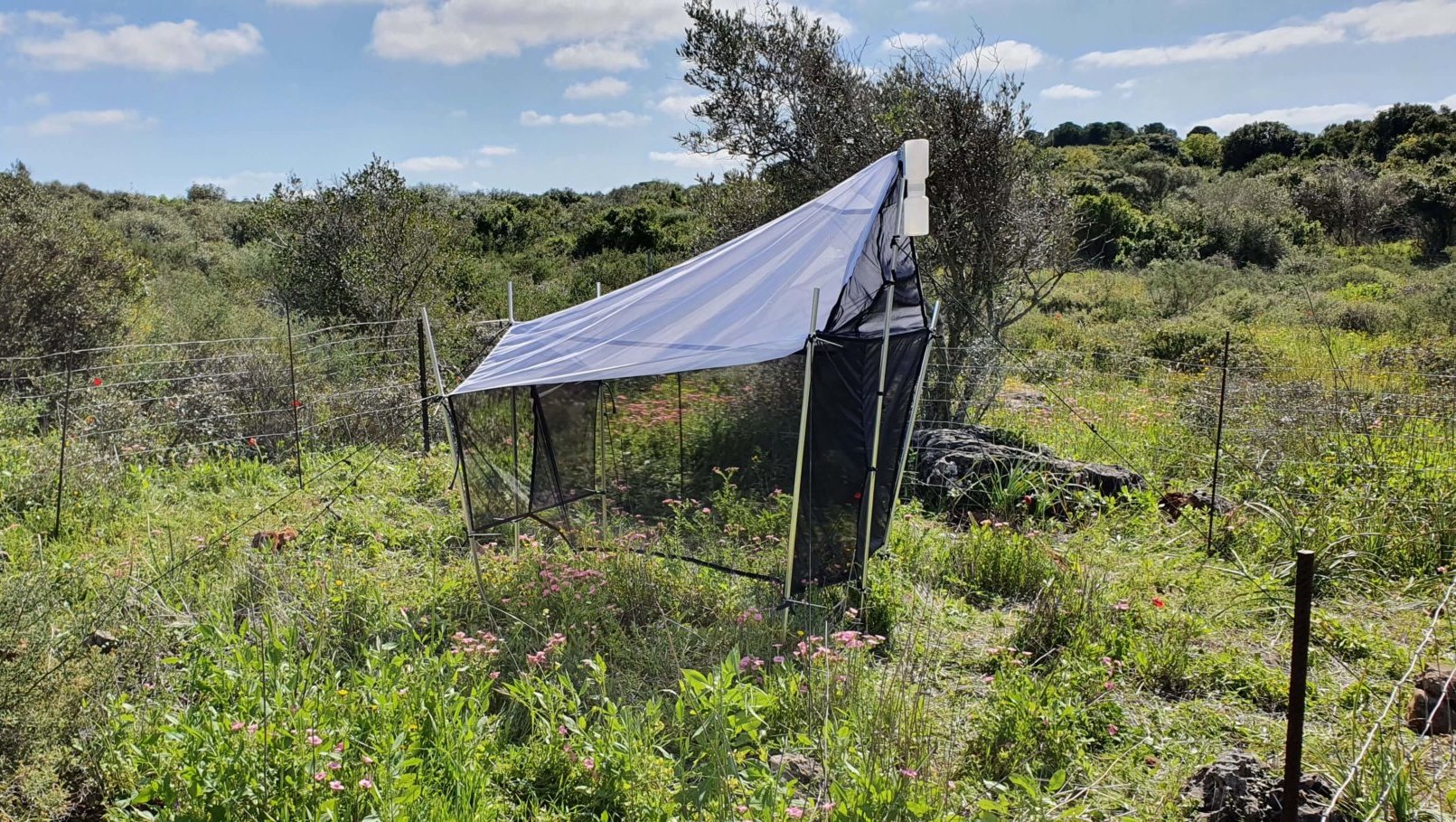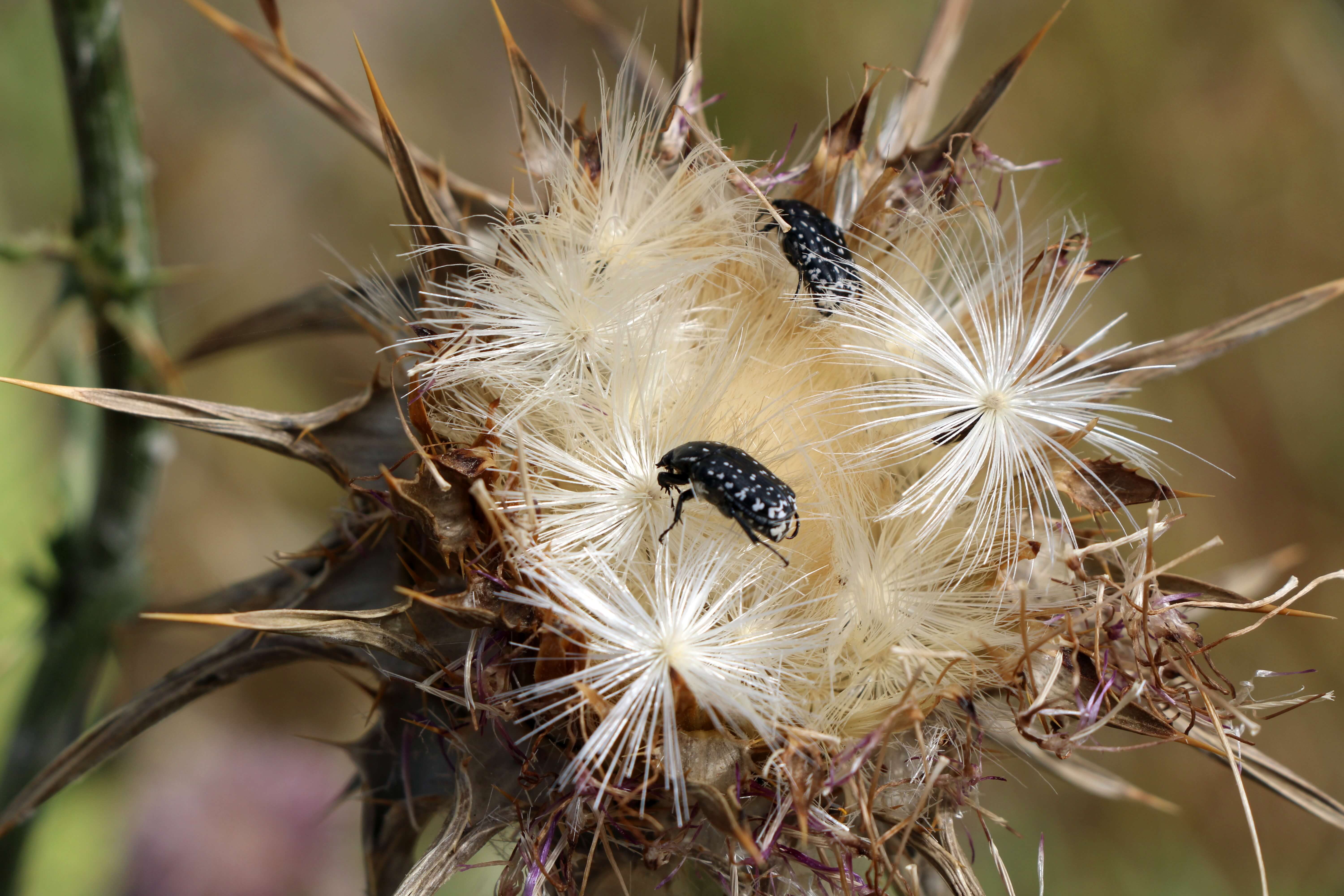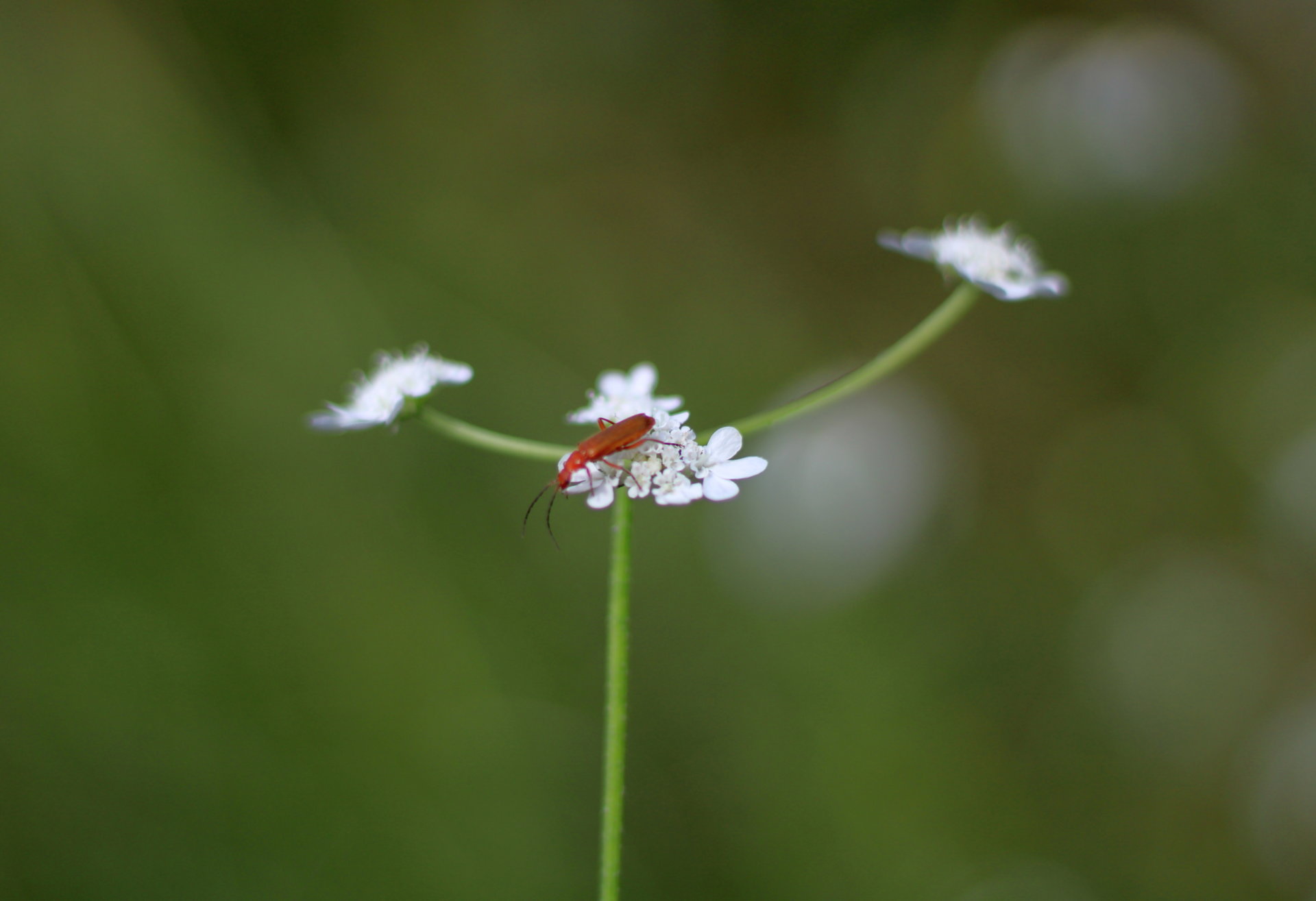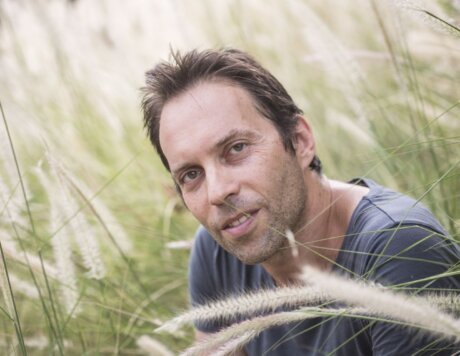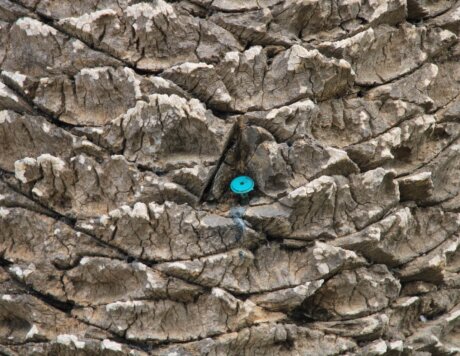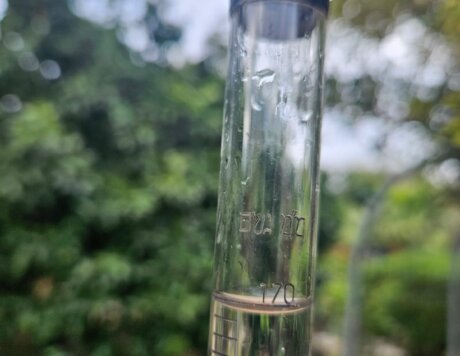If you follow the dirt road at Ramat Hanadiv, heading west from the goat pen towards the vulture trail, you’ll notice a kind of white tent nestled in the vegetation. But it’s not really a tent and no-one is camping here: it’s a new facility that was installed here about two months ago for the purpose of studying flying insects and making sure they’ll be protected in nature.
This facility has a scientific name – malaise trap – after the Swedish entomologist who invented it. Connected to its edge is an inverted bottle that traps flies, mosquitoes, moths and other flying insects.
It’s true; these insects can be really annoying sometimes, so why do we need to make so much effort to protect them? Well, did you know they are responsible for the pollination of flowers in nature, and that without them we wouldn’t exist?


